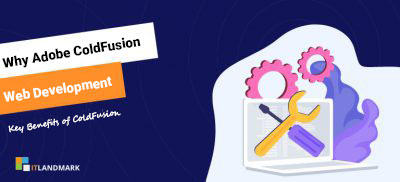 Finding the best ColdFusion company for your project involves several critical factors to ensure you choose a partner that meets your needs and delivers high-quality results. Here are some detailed bullet points with explanations:
Finding the best ColdFusion company for your project involves several critical factors to ensure you choose a partner that meets your needs and delivers high-quality results. Here are some detailed bullet points with explanations:
Table Of Contents
- Experience and Expertise
- Portfolio and Case Studies
- Client Testimonials and References
- Technical Proficiency and Tools
- Security and Compliance
- Project Management and Communication
- Cost and Budget
- Support and Maintenance
- Scalability and Flexibility
- Innovation and Thought Leadership
- On-Time Delivery and Accountability
- Frequently Asked Questions
- Conclusion
How To Find the Best ColdFusion Company
Discover effective methods for locating and hiring highly skilled ColdFusion programmers. Learn how to assess their expertise and qualifications to ensure you find the best fit for your projects.
1) Experience and Expertise
- Years of Experience: Look for a company with extensive experience in ColdFusion development. Companies with a longer track record are more likely to have encountered and resolved various challenges.
- Expertise in ColdFusion: Verify that the company has specialized knowledge in ColdFusion, including the latest versions and features. Check for certifications or specific training that their developers have undergone.
2) Portfolio and Case Studies
- Review Portfolio: Examine the company’s portfolio to see the types of projects they’ve completed. Look for diversity in their work, which can indicate a broad skill set.
- Case Studies: Detailed case studies provide insights into how the company handles different challenges and the solutions they provide. Look for projects similar to yours to assess their capability in handling your specific requirements.
3) Client Testimonials and References
- Testimonials: Check for client testimonials on the company’s website or third-party review sites. Positive feedback from satisfied clients is a good indicator of reliability and quality.
- References: Request references from the company and follow up with their past clients. Ask about their experience, the quality of work, communication, and any issues they encountered.
4) Technical Proficiency and Tools
-
- Technical Skills: Ensure the company’s developers are proficient in related technologies, such as SQL, JavaScript, HTML/CSS, and other web development tools that complement ColdFusion.
- Use of Modern Tools: The company should use modern development tools, frameworks, and best practices. This includes version control systems like Git, continuous integration/continuous deployment (CI/CD) pipelines, and robust testing frameworks.
5) Security and Compliance
- Security Practices: The company should have a strong focus on security, especially if your project involves sensitive data. Ask about their approach to securing applications, handling data breaches, and regular security audits.
- Compliance with Standards: Ensure the company complies with industry standards and regulations relevant to your project, such as GDPR, HIPAA, or PCI DSS.
6) Project Management and Communication
- Project Management Approach: Understand the company’s project management methodology, whether it’s Agile, Scrum, Waterfall, etc. This will give you insight into how they plan, execute, and track projects.
- Communication: Clear and consistent communication is vital. Assess how the company communicates during the initial discussions. They should provide regular updates, be responsive, and be willing to discuss and address concerns.
7) Cost and Budget
- Transparent Pricing: Look for a company that provides transparent pricing with no hidden costs. They should be able to give you a clear estimate and break down the costs.
- Value for Money: Consider the quality of work, the company’s reputation, and the overall value they provide in relation to their pricing.
8) Evaluating Knowledge in Coding Languages
- Ongoing Support: Check if the company offers ongoing support and maintenance services after the project is completed. This can be crucial for addressing any issues that arise post-launch.
- Service Level Agreements (SLAs): Look for clear SLAs that outline the response times, support hours, and resolution processes.
9) Scalability and Flexibility
- Scalability: Ensure the company has the capability to scale up their resources if your project grows. They should be able to handle increasing demands, whether it’s in terms of more users, features, or performance.
- Flexibility: The company should be flexible in adapting to changes in project scope, timelines, or requirements. This is important as projects can evolve over time.
10) Innovation and Thought Leadership
- Innovation: Look for a company that is innovative and stays up-to-date with the latest industry trends and technologies. This can be a sign of a forward-thinking partner who can bring new ideas and solutions to your project.
- Thought Leadership: Companies that contribute to the community through blogs, webinars, or open-source projects often have a deep understanding of the technology and are passionate about their work.
11) On-Time Delivery and Accountability
- Timely Delivery: A top ColdFusion company should consistently deliver projects on time, adhering to the agreed-upon schedule. Timely delivery is crucial for meeting business objectives and ensuring smooth transitions, especially for time-sensitive projects.
- Accountability: The company should demonstrate accountability by taking full responsibility for their work, from development to deployment. This includes addressing any issues promptly, being transparent about challenges, and ensuring that all project deliverables meet the agreed-upon standards and requirements. Clear communication and a commitment to quality are key aspects of accountability.
Frequently Asked Questions
1.What is ColdFusion, and why should I choose it for my project?
ColdFusion is a web application development platform that allows for rapid development of dynamic websites and web applications. It’s known for its simplicity, integration capabilities, and powerful features. Choosing ColdFusion can be beneficial if you’re looking for a platform with strong integration with databases, efficient handling of complex logic, and a vibrant community.
2.How do I evaluate the technical skills of a ColdFusion development company?
You can evaluate a company’s technical skills by reviewing their portfolio, checking for certifications, and assessing their expertise in related technologies. Additionally, asking specific technical questions during initial discussions can help gauge their proficiency.
3.What should I expect in terms of project timelines and milestones?
Timelines and milestones vary depending on the project’s scope and complexity. A reputable ColdFusion company will provide a detailed project plan with clear milestones and timelines. It’s important to have regular check-ins to ensure the project stays on track.
4.How important is security in ColdFusion development, and how is it handled?
Security is critical in ColdFusion development, especially for applications handling sensitive data. A good company will implement robust security practices, including secure coding standards, regular security audits, data encryption, and compliance with relevant regulations.
5.Can a ColdFusion application integrate with other technologies and systems?
Yes, ColdFusion is highly versatile and can integrate with a wide range of technologies and systems, including databases, third-party APIs, and other web services. It supports various protocols and data formats, making it suitable for complex integrations.
6.What kind of post-launch support and maintenance should I expect?
Post-launch support typically includes bug fixes, performance monitoring, updates, and enhancements. A reputable company will offer ongoing support and maintenance services, often defined in a Service Level Agreement (SLA), ensuring timely responses and resolutions.
7.How do companies handle changes in project scope or requirements?
Changes in project scope or requirements are common. A good ColdFusion company will be flexible and have processes in place for managing changes, including impact assessments, revised timelines, and cost adjustments.
8.What are the costs associated with ColdFusion development?
The costs can vary widely based on the complexity and scope of the project, the company’s expertise, and the level of support required. It’s important to get a detailed quote that includes all potential costs, including development, testing, deployment, and post-launch support.
9.How can I ensure that the company I choose will deliver high-quality work?
Ensuring high-quality work involves several steps: thorough vetting of the company’s experience, technical skills, and past projects; checking client testimonials and references; and establishing clear expectations and communication throughout the project.
10.Is ColdFusion still a relevant technology, and what is its future?
ColdFusion remains relevant for specific use cases, particularly in enterprise environments where its rapid development capabilities, strong integration features, and robust security are valued. Adobe continues to support and update ColdFusion, ensuring its future viability. However, it’s always wise to consider the specific needs of your project and evaluate if ColdFusion is the best fit.
Conclusion
By carefully evaluating potential ColdFusion companies against these criteria, you can make a well-informed decision and choose a partner that aligns with your project goals and needs.



